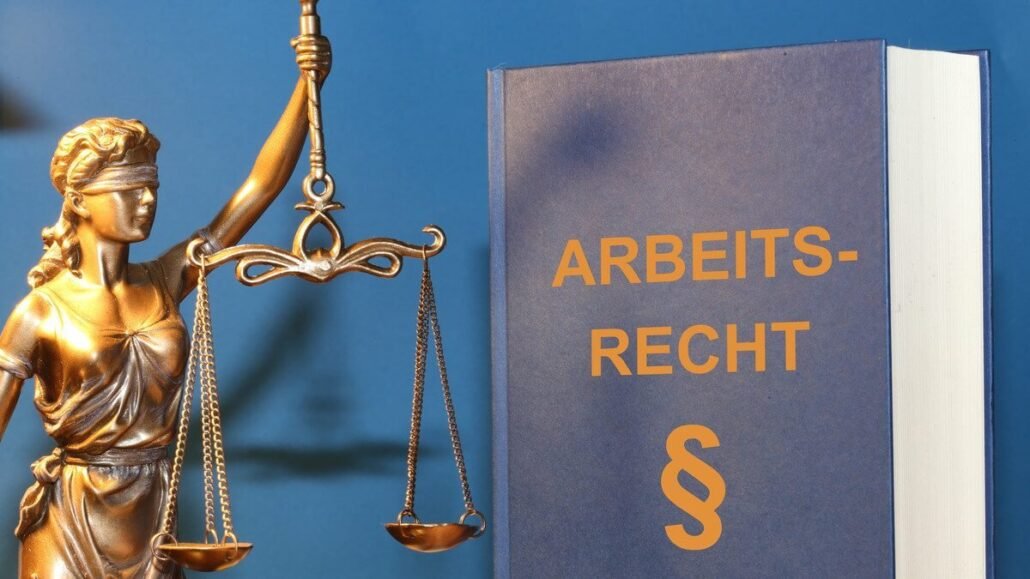

A garden leave (Freistellung) is a common practice in which an employee is – revocably or irrevocably – released from their work obligations while the employment relationship still exists. This leave of absence can be either paid or unpaid, depending on the respective agreements. It is often used to avoid tension in the workplace or to make the transition easier for the employee.

Calculate severance pay now free of charge
- Calculate potential severance payment amount
- Strategy for negotiating a fair severance payment
- Find suitable lawyers for labour law
Key takeaways
- There are no legal requirements governing garden leave following termination. Therefore, there is no entitlement to garden leave until the end of the notice period
- Types of garden leave: Leave of absence following termination can be revocable (i.e. the employer can ‘call back’ the employee) or irrevocable.
- Unilateral exemptions : These are granted without the employee’s consent and are actually inadmissible, with a few exceptions.
- Mutually agreed exemptions: These are based on an agreement between the employee and employer, often as part of a termination agreement.
- Garden leave and holiday/time off in lieu: Holiday entitlements and time off in lieu can be credited to the period of paid leave within the framework of a written agreement with the employer.
- Company property and secondary employment: The use of company property and the taking up of secondary employment during the leave of absence depend on the provisions of the employment contract or the garden leave agreement.
Content
General information on garden leave
Leave of absence after termination of employment can be granted for any reason. This applies whether the dismissal was due to behavioural, personal, or operational reasons. There are no specific legal rules governing garden leave after termination. Therefore, the terms depend on the agreement between the employer and the employee. This article explains the different types of leave of absence. It also shows how they differ and what you should consider. Topics include holiday entitlement, company cars, secondary employment, and more.
Revocable or irrevocable exemption
- In the case of a revocable exemption, the employer reserves the right to request the exempted employee to return to work until the end of the notice period.
- In the case of irrevocable garden leave, the employer cannot require the employee to resume work.
- Leave is generally revocable at any time unless the employer expressly declares it to be irrevocable.
Calculate your severance payment
Calculate the settlement amount for your individual case in 2 minutes
Unilateral vs. mutual leave agreement
Leave can either be declared unilaterally by the employer or agreed upon by mutual consent between the employer and employee:
Unilateral leave granted by the employer and interim earnings
In the case of unilateral garden leave, the employer decides to release the employee from their work obligations without their consent. This form of leave is often used after termination of employment to avoid conflicts in the workplace or to prevent access to confidential information.
Unilateral exemption is actually legally inadmissible. An exception only exists if legitimate employer interests (e.g. the employee’s employment and presence in the company jeopardise the employer’s interests and make employment unreasonable) outweigh the employee’s interest in continuing employment. A contractual clause that allows exemption without these conditions is generally inadmissible, as it places the employee at an unreasonable disadvantage.
It is important to note that the employer is generally obliged to continue paying the salary. However, the employee must allow the employer to offset any income from other work, known as interim earnings. If the employee works for another employer during a period of unilateral exemption, this income must be offset against their salary. In such cases, the employer can reduce the continued salary payments accordingly. If the employer has reason to believe that interim earnings exist, they may also have a right to request information.
Mutual exemption
A mutually agreed garden leave is based on an agreement between the employer and the employee. This form of leave is often granted as part of a termination agreement, in which both parties agree to terminate the employment relationship, including the paid leave. In the case of mutually agreed leave, the interim earnings are not offset because the employee no longer owes any services. This means that offsetting is only possible if it is expressly agreed in the exemption agreement.
In the case of a mutually agreed exemption, the following points regarding the exemption are often included in the agreement:
- Exemption: Revocable or irrevocable
- Remuneration: Amount of remuneration during the exemption
- Secondary activities: Are these permitted? If so, under what conditions?
- Return of company property: When, for example, must the company car be returned after termination?
- Remaining holiday entitlement and time off in lieu (overtime)
Formal requirements for garden leave
Leave of absence does not have to be granted in writing. However, it is highly advantageous for both parties to set out the agreement in writing. As a rule, termination and paid leave can be combined in a single letter from the employer. Alternatively, the employment contract can include a clause about leave of absence in case of termination.
Free initial consultation with a lawyer
Quick callback after 1 to 2 hours for a free initial consultation with a lawyer
Garden leave and unemployment benefits
Irrevocable and revocable paid leave until the end of the notice period has no effect on the amount of unemployment benefits. The remuneration paid during the garden leave is taken into account when calculating unemployment benefits.
In the case of irrevocable release by means of a termination agreement, the waiting period of usually twelve weeks begins with the start of the release. This is because the ‘employment relationship’ ends even though the ‘employment contract’ still formally exists. Further information can be found in the article Waiting period in the event of termination.
Example: An employee concludes a termination agreement without compelling reasons and is irrevocably released from work for twelve weeks. This period of release from work is then considered a waiting period. After this waiting period has expired, the employee can apply for unemployment benefit I directly without having to accept additional waiting periods.

Free initial consultation with a specialist lawyer
- Free initial consultation with a lawyer
- Quick callback after 1 to 2 hours
- Strategy for negotiating the severance pay
Frequently asked questions (FAQ)

Free initial consultation with a specialist lawyer
- Free initial consultation with a lawyer
- Quick callback after 1 to 2 hours
- Strategy for negotiating the severance pay
- Company car upon termination – is it mandatory to return it?
- Company mobile phone and laptop after termination – When do you have to return them?
- What happens to untaken holidays when you lose your job in Germany?
- What is the “blocking period” for unemployment benefits in Germany?
- Job termination agreement – 5 items to watch
- Sprinter clause in the termination agreement – maximise severance pay




